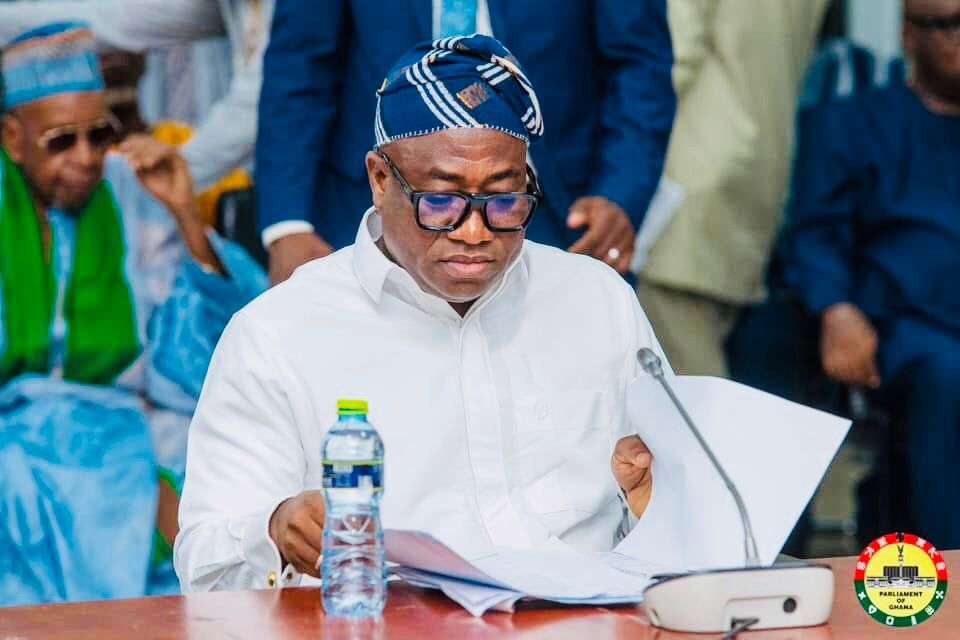Hon. Murtala Muhammed, Minister-designate for Environment, Science, and Technology has emphasized the need for Ghana to accelerate the adoption of solar energy, given its availability and long-term cost benefits.
Ghana’s energy sector has long been dominated by traditional fossil fuel sources, with renewable energy accounting for approximately 10% of the country’s energy mix. Despite the abundant solar and wind resources, progress in renewable energy adoption has been slow.
During his appearance before the Appointments Committee of Parliament, Hon. Murtala Muhammed addressed the nation’s renewable energy challenges and potential strategies for improvement.
He proposed that the government should take the lead by equipping state institutions, including ministries, agencies, and educational institutions, with solar power systems.
“If we can start with government buildings and institutions, we can set an example for the private sector to follow.
“If Parliament, for instance, decides to go solar, it can encourage other public institutions to do the same.”
Hon. Murtala Muhammed, Minister-designate for Environment, Science, and Technology
He acknowledged that the initial capital investment for solar energy infrastructure is high but pointed out that state institutions’ indebtedness to the Electricity Company of Ghana (ECG) could be alleviated if they transitioned to solar power.
Beyond solar, Hon. Muhammed mentioned the possibility of harnessing tidal waves along Ghana’s coastline to generate electricity.
While the country has seen attempts to develop renewable energy projects, such as the Kaleo Solar Farm in the Upper West Region, production levels remain low, falling short of the projected 10% contribution to the energy grid.
Hon. Muhammed stressed the need for government intervention to fast-track renewable energy expansion and ensure that these projects operate at optimal capacity.
One of the key discussions during the parliamentary hearing centered on whether Ghana should prioritize industrial development over rapid renewable energy adoption.
The global trend among developed nations, including Germany, is to shut down coal plants and shift to cleaner energy sources. However, some experts argue that African nations should prioritize economic growth, even if it means a temporary increase in carbon emissions.
Muhammed acknowledged the dilemma, noting that developed nations industrialized at the cost of significant environmental damage.
“Those countries are where they are today because they had a carte blanche to industrialize,” he said. However, he also recognized that Ghana, like other developing countries, faces geopolitical and economic pressures that complicate such decisions.
“Our contribution to global carbon emissions is minimal compared to countries like the U.S., China, and India.
“While we must transition towards clean energy, we also need to industrialize to create jobs and improve our economy.”
Hon. Murtala Muhammed, Minister-designate for Environment, Science, and Technology
Debate Over Renewable Energy and Industrialization

During the vetting session, Hon. Muhammed was also asked about the balance between renewable energy adoption and industrial development.
Some experts argue that, given Africa’s developmental stage, nations should be allowed to prioritize industrialization, even if it means emitting more carbon dioxide, much like the industrialized nations did in the past.
In response, Muhammed acknowledged the complexities of this debate, stating that while the world is moving towards cleaner energy, Africa must find a balance that suits its unique development needs.
“The industrialized countries, like China, the U.S., and Europe, have already gone through their stages of pollution to get where they are.
“We are not in the same position, but we also cannot ignore global trends.”
Hon. Murtala Muhammed, Minister-designate for Environment, Science, and Technology
He also pointed out that Africa’s contribution to global emissions is relatively small, and that industrialization could be a part of the continent’s development process.
However, he stressed the importance of not neglecting the environmental impact of this growth, especially in the context of climate change.
As Ghana moves forward with its energy transition, the government’s role will be critical in driving the adoption of renewable energy.
The challenges of financing and infrastructure development must be addressed, and the government should lead by example by adopting solar and other renewable technologies in state institutions.
At the same time, policymakers must ensure that renewable energy projects are financially viable and that the nation’s industrialization process aligns with global sustainability goals.
Ghana has the potential to become a leader in renewable energy in Africa, but this will require concerted effort from both the government and the private sector.
With the right investments, policies, and infrastructure, the country can build a cleaner, more sustainable energy future while continuing its development trajectory.
READ ALSO: Eight Captives Including Five Foreigners Released In Gaza





















